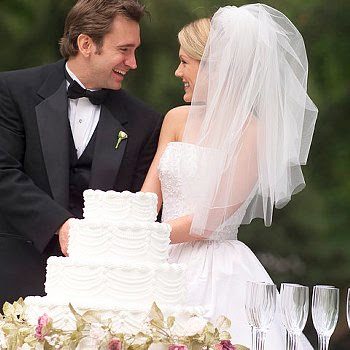Like my blog? Sign-Up for a FREE newsletter! OR Give a ‘Like’ to my FaceBook Page
 Your wedding day is supposed to be one of the most important days of your life. It’s a day that you’ve been looking forward to and have undoubtedly spent a great deal of time planning. The arrangements are made for the reception, including the hall to be used, as well as the caterer. Invitations have been sent. Everything seems to be falling into place, and the wedding should take place without a hitch. But, what happens if something goes wrong? Will you be financially protected in the event plans need to be changed? Following are a few tips on how to insure your wedding.
Your wedding day is supposed to be one of the most important days of your life. It’s a day that you’ve been looking forward to and have undoubtedly spent a great deal of time planning. The arrangements are made for the reception, including the hall to be used, as well as the caterer. Invitations have been sent. Everything seems to be falling into place, and the wedding should take place without a hitch. But, what happens if something goes wrong? Will you be financially protected in the event plans need to be changed? Following are a few tips on how to insure your wedding.
What Is Wedding Insurance?
Basically, wedding insurance is a type of insurance that will protect your financial investment in case something happens and your wedding can’t take place as planned. Any event as complex as a wedding, especially if it’s a large fancy one, can have numerous things go wrong. Your caterer could cancel at the last minute due to illness or a family emergency. If that happens, you could be forced to shell out big bucks to another caterer who’s willing to take the job on the spur of the moment–for a price. The hall you rented could develop a water leak, and you’d be forced to find another place to hold the reception–probably at an inflated rate, because the staff would be forced to hire extra workers to get the place ready on time. The list of potential disasters is virtually unlimited. Having an insurance policy in place to handle unexpected expenses could provide you with the peace of mind that’ll allow you to enjoy your special day.
Check with Your Vendors
Wedding insurance can be expensive. Before rushing off to buy a policy, it would be a good idea to check with each of your vendors to see if they’re covered for emergencies. The hall you rented may have their own insurance policy in place that will provide funds for you to find another place. Your caterer may have their own insurance against unexpected problems, such as family emergencies, illness, or receiving a bad load of potatoes. If their insurance is adequate, you may not have to consider buying wedding insurance. If there’s a doubt as to whether or not a vendor’s insurance will provide adequate protection, you may want to go ahead with the purchase of a wedding protection policy.
Determine the Extent of Coverage You’ll Need
If you decide that wedding insurance is necessary, you’ll need to determine the extent of coverage you’ll need. Some facets of your wedding may be covered under your homeowner’s policy, so be sure and check with your insurance agent before taking out an additional policy. It would be a good idea to sit down with your intended, and other family members, and decide what type of financial protection you need and the extent of that protection.
Supplemental Policies
Some things may not be covered in a traditional wedding insurance policy. For instance, if you have a very expensive engagement ring, it may not be covered by your policy–on the other hand, your wedding rings probably are covered. If the wedding dresses contain precious or semi-precious stones, they may not be covered by a standard wedding insurance policy. You should check with your agent to be sure what is and isn’t covered. If they point out anything that isn’t covered, and you feel you need financial protection, you could take out a supplemental insurance policy that will provide specific coverage.
Shop Around
Shopping for the best possible price on wedding insurance is a sound idea, as it is for any type of coverage. Because the insurance industry is extremely competitive, most companies will go far out of their way to try and entice you buy insurance coverage through them. A good place to start looking for wedding insurance is to go online and search for companies that do business over the Internet. Most online companies provide you with the opportunity to receive a free quote simply by filling out an online form. You should do this with two or three companies so you can get an idea of how much a policy is going to cost. Use these quotes for comparison when you begin calling the more traditional brick and mortar agencies. Make sure you request the same type and extent of coverage when you ask for a quote, so you’ll be sure you’re getting comparable quotes. You should also talk to your present insurer, because most companies will go out of their way to give you a good rate so they can retain your business.
Guest post from Adrian Wade. Adrian writes about many insurance related topics for InsuranceCompanies.org.
